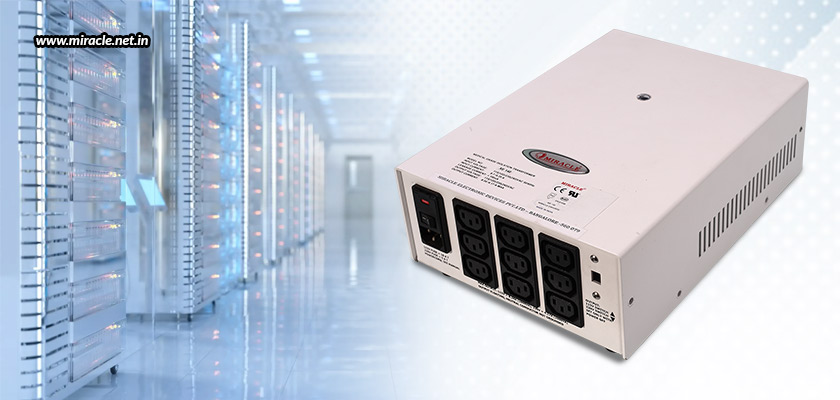Isolation transformers are crucial for preserving electrical stability and security across diverse industries. They are essential in settings like healthcare, manufacturing, data centres, and telecommunications because of their capacity to lessen electrical noise, eliminate ground failures, and attenuate voltage spikes. However, choosing an appropriate isolation transformer for your particular application requires taking into account a number of crucial elements, all of which are covered in the blog post below. You can guarantee optimum performance, increased equipment longevity, and a safer power infrastructure by matching the transformer’s capabilities with the requirements of your system. This blog provides thorough information to assist you in making an informed decision regarding your electrical systems.
Understanding the requirements of your application
Every industry has different isolation transformer requirements. While industrial applications require robust designs that can survive harsh circumstances and fault tolerance, healthcare relies heavily on precise and noiseless operation to assure patient safety. On the other hand, to ensure smooth operations, data centres place a higher priority on noise reduction and voltage stability. Understanding these particular requirements makes it easier to identify the essential features your isolation transformer must have, whether those features are electrical safety, noise reduction, or both.
Evaluating load requirements
It is crucial to accurately estimate the power requirements of the connected equipment. To make sure the transformer can manage the load, figure out the overall load in kilovolt-amperes (kVA) or kilowatts (kW). Choose a transformer with an overload tolerance margin to accommodate unforeseen demand spikes. Select transformers made to control harmonic distortions in order to avoid inefficiency and overheating in systems with nonlinear loads, such as those used in manufacturing.
Assessing voltage levels
It is crucial that the transformer, the load, and the power source all have compatible voltages. Verify that the input and output voltage ratings correspond to the specifications of your system. Make sure the transformer can handle voltage conversion if it’s required, such as stepping the voltage up or down. Transformers with adjustable tap settings provide dynamic systems with flexibility by enabling fine-tuning of the output voltage.
Assessing the efficiency and quality of the build
Long-term performance and dependability are guaranteed by a high-quality transformer. Examine models with better core materials that minimize energy losses, including silicon steel. Because of their superior endurance and conductivity, copper windings are recommended. In addition to lowering operating expenses, high-efficiency transformers help create a more sustainable electrical infrastructure.
Putting safety features first
When selecting isolation transformers, safety is paramount. To avoid shocks, look for galvanic isolation that separates electrical circuits. To reduce the dangers associated with unintentional current flow, ground fault prevention is crucial. Make sure the transformer always conforms with industry standards like UL, CE, or IEC, which ensure adherence to strict performance and safety requirements.
Taking environmental factors into account
The choice of transformer is significantly affected by the surrounding environment. Determine the installation site’s operating temperature and select a transformer that is qualified for such conditions. Transformers that are sealed or encased provide superior protection in environments with high humidity, dust, or corrosive materials. Cooling systems are also important; choose oil-cooled transformers for demanding applications or air-cooled transformers for milder settings.
Analyzing noise reduction
Sensitive equipment can be negatively impacted by electrical noise, especially in data centres, healthcare facilities, and laboratories. High-frequency noise from electromagnetic interference or adjacent equipment can be effectively filtered using isolation transformers. The accuracy and safety of connected equipment are guaranteed by models with electrostatic shielding, which further improves their capacity to eliminate interference.
Factoring in cost and maintenance
Even while the initial cost is important, you need to also consider long-term factors like durability and maintenance requirements. Purchasing a high-quality transformer reduces downtime and replacement expenses. To minimize operational disruptions and guarantee constant performance, choose designs that are easy to service.
Partnering with trusted manufacturers
Working with a reliable manufacturer is the secret to acquiring superior isolation transformers made to satisfy a range of application requirements is. Miracle Electronics focusses on providing cutting-edge solutions of isolation transformers for industries like data centres, manufacturing, healthcare, and telecommunications. Their products are meticulously designed to meet strict international safety and performance requirements, including UL and CE certifications. Miracle Electronics is dedicated to quality and innovation, making sure that the transformers are not only long-lasting and effective, but also customized to meet the specific needs of every customer. Additionally, they provide specially designed solutions that are suited to particular enclosures, special voltage needs, or extra protective features. They are a recognized partner for companies looking for dependable and secure electrical infrastructure owing to their unmatched knowledge and customer service.
In summary, the safety, reliability, and effectiveness of your electrical systems are all impacted by your choice of isolation transformer. You can make sure the transformer you select supports your operational objectives by carefully analyzing your application requirements and the previously listed considerations. Purchasing the appropriate transformer now not only protects your operations, but also sets up your company for long-term success and adaptability in the constantly changing industrial environment of today.



